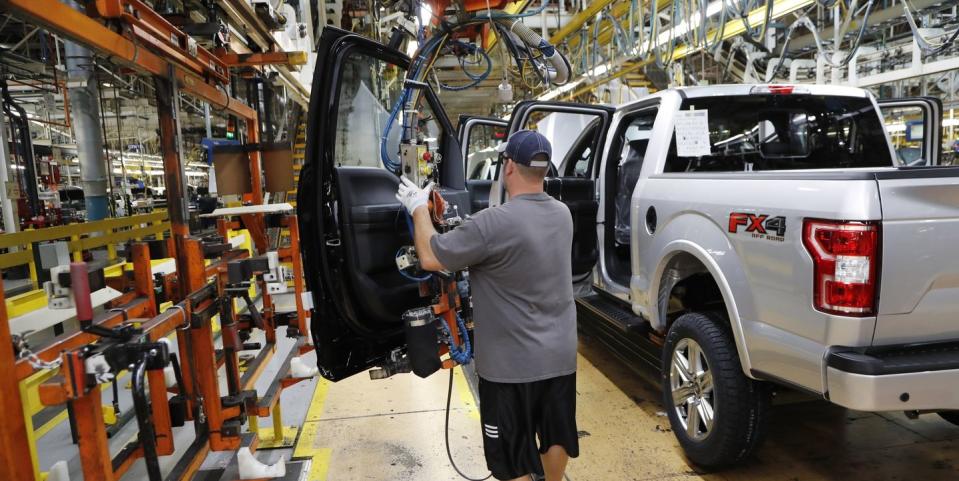Semiconductor Shortage Halting Car Production across North America

Across North America, automakers are being forced to adjust production schedules due to the scarcity of microchips.
General Motors, Ford, Stellantis, Toyota, Volkswagen, Honda, Nissan, and Subaru have all adjusted production at some of their North American plants to properly allocate the chips.
It is projected that globally, the shortage will cost the industry $61 billion, and through the first quarter of this year, one million fewer vehicles will be produced worldwide.
The first signs of a semiconductor shortage appeared late last year, and now, a month and a half into 2021, the scope of the impacts is coming into view. Plants across North America are seeing production schedules adjusted to properly allocate the limited number of microchips—which are made up of semiconductors—reaching automotive assembly plants. As the New York Times noted recently, a new car or truck can have as many as 100 of the chips on board as essential components in everything from touchscreens to transmissions.
General Motors, Ford, Stellantis, Toyota, Volkswagen, Honda, Nissan, and Subaru have all had to adjust production as a result of the scarcity of semiconductors. By and large, the automakers are prioritizing their high-margin vehicles, such as trucks and SUVs, and cutting production of high-inventory vehicles—but nonetheless, that hasn’t prevented vehicles such as the Ford F-150 from seeing production cut back.
Ford has adjusted production schedules at five of its North American plants, including at the Michigan Dearborn Truck Plant, Kansas City Assembly, Chicago Assembly, Louisville Assembly, and Oakville Assembly in Ontario, Canada. Those five plants assemble many vehicles, including the Ford Explorer, F-150 (in both Dearborn and Kansas City), Escape, and Edge, as well as the Lincoln Corsair, Nautilus, and Aviator.
At Ford’s crosstown rival, General Motors, the semiconductor shortage has had similar effects. Production at three plants has been adjusted, including Fairfax Assembly in Kansas City, CAMI Assembly in Ingersoll, Ontario, and San Luis Potosí Assembly in Mexico. These three plants are responsible for the Cadillac XT4, the Chevrolet Malibu and Equinox, and the GMC Terrain. Two other plants, Ramos Arizpe Assembly in Mexico and Wentzville Assembly in Missouri, are building partially assembled vehicles; once the needed microchips are again available, those vehicles will be finished. These plants are responsible for the Chevrolet Colorado and Blazer as well as full-size Chevy and GMC vans.
Dealers Not Feeling Shortage—Yet
Because automakers are prioritizing their high-inventory vehicles, the shortage hasn't yet been reflected in the selection of vehicles reaching dealer lots. Nonetheless, this could change, and buyers could end up not being able to find the cars that they want, Kristin Dziczek, VP of research at the Center for Automotive Research, told Car and Driver in January.
In North America, Stellantis—now the owner of FCA and Peugeot—has seen a number of plants adjust production including Toluca Car Assembly in Mexico, Brampton Assembly in Ontario, Belvidere Assembly in Illinois, and Windsor Assembly in Ontario. These four plants are responsible for the Dodge Journey, Charger, and Challenger, the Jeep Compass and Cherokee, and the Chrysler 300, Pacifica, and Voyager.

 Yahoo Autos
Yahoo Autos 